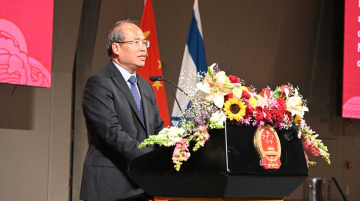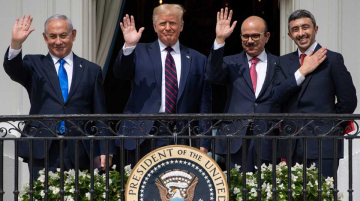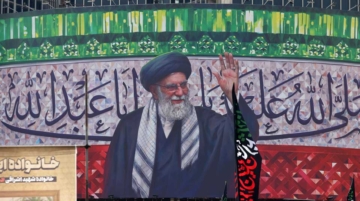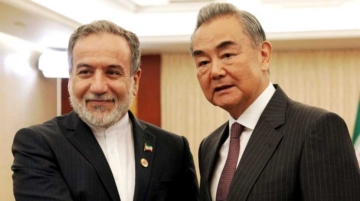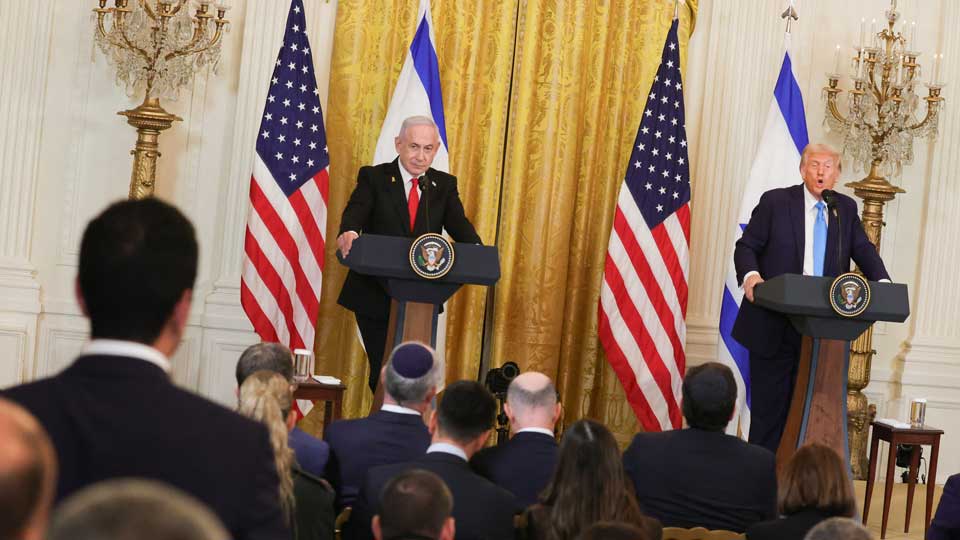
On January 15, Israel and Hamas agreed to an armistice proposal brokered by the United States, Egypt, and Qatar, offering hope for a lasting resolution to the fighting in Gaza. The first phase of the agreement entailed a six-week ceasefire and the release of several Israeli hostages in exchange for Palestinians detained by Israel. While this phase has concluded, negotiations for the second phase, set to involve the complete withdrawal of Israeli troops from the Gaza Strip and the establishment of a permanent ceasefire, have not yet begun amid ongoing disputes.
The ceasefire came into effect just one day before the inauguration of the second Trump administration, with U.S. President Donald Trump taking credit for the deal. Shortly thereafter, on February 4, Trump met Israeli Prime Minister Benjamin Netanyahu in Washington D.C., and during the subsequent press conference announced that the U.S. would assume control of the Gaza Strip, “permanently relocate” its two million inhabitants, and develop the territory into what he termed the “the Riviera of the Middle East.”
Trump’s proposal, widely described as tantamount to ethnic cleansing, has faced sharp global condemnation, including from Egypt, Jordan, and Saudi Arabia, who have categorically rejected resettling Gaza’s population in their countries. Beijing has also criticized the proposal, with Vice Foreign Minister Chen Xiaodong stating to a group of Arab ambassadors that “Gaza belongs to Palestinians and is an inseparable part of Palestinian territory.”
Beyond the official Chinese response, Chinese commentators have also weighed in on Trump’s plan and the ceasefire. With the second phase of the armistice in jeopardy, this edition of the ChinaMed Observer explores the ongoing debate among Chinese experts concerning the situation in Gaza and its future. Our overview reveals that most Chinese scholars doubt that the ceasefire will hold, with many predicting that Israel will reject implementing the agreement’s subsequent phases. Moreover, when assessing Trump’s “business-oriented mindset” toward Gaza, much of the discussion in Chinese media has centered on the rejection of Trump’s plan by Arab states, with little attention given to China’s own role in the region.
The Rise and Probable Collapse of the Gaza Ceasefire
There is considerable debate among Chinese experts regarding the motivations that led both Israel and Hamas to agree to a ceasefire, with scholars identifying a range of different internal and external factors.
Liu Zhongmin, Director of the Middle East Studies Institute at Shanghai International Studies University (SISU), argued that both sides are facing significant domestic pressure to pursue a ceasefire. Despite its military superiority, Israel’s three main goals—rescuing hostages through military means, eliminating Hamas, and ensuring Gaza no longer posed a threat to Israel—remain largely unfulfilled, with Liu noting that the majority of hostages freed prior to the armistice were secured through a brief ceasefire agreement in November 2023.
Meanwhile, on the Palestinian side, the war has had a catastrophic toll, with over 46,000 reported civilian deaths. Hamas itself has also suffered heavy losses in terms of leadership, organizational structure and military strength. For Liu, Hamas was likely also pushed into accepting the ceasefire agreement due to weakening external support from its foreign backers—Iran, Hezbollah, the Assad regime in Syria, and other forces of the “Axis of Resistance”—which have faced devastating setbacks in the last year.
Offering a different perspective, Tian Wenlin, a professor at Renmin University and a former researcher of Middle Eastern affairs at the China Institutes of Contemporary International Relations, posited that both Israel and Hamas have, in fact, already achieved their primary objectives as Israel’s main goal was to eliminate or, at the very least, decisively weaken Hamas, while Hamas sought to bring the Palestinian issue back to the forefront of regional politics.
Despite offering various explanations for the armistice, Chinese experts overwhelmingly agree that the agreement will probably collapse soon. Li Zixin, Assistant Research Fellow at the China Institute of International Studies, contended that while Netanyahu accepted the agreement due to domestic pressure, the dynamics of Israeli politics make the ceasefire’s future highly uncertain, particularly regarding the implementation of its second and third phases.
This view is shared by most Chinese scholars. For example, Niu Xinchun, executive director of the China-Arab Research Institute of Ningxia University, maintained that although Hamas is inclined to advance into the second phase of the ceasefire, Netanyahu will likely halt implementation at the first phase and might even create incidents to justify suspending the armistice. However, he also predicted that, for now, Israel will likely adhere to the agreement, as not all hostages have been released. Niu further underscored Israel’s readiness to recommence hostilities, noting how the Israel Defense Forces have so far withdrawn from only two villages in the Strip, and that it is highly unlikely that they will retreat from additional areas any time soon.
Dong Manyuan, Deputy Director and Middle East expert at the China Institute of International Studies, reasoned that Netanyahu will likely restart and prolong the war due to political and historical considerations. He explained:
“First, there is a political need for Netanyahu to maintain the coalition government. Currently, there are two far-right parties in Israel’s coalition government […] they both demand Netanyahu’s government not end the military action against Hamas and that it must simultaneously eradicate Hamas in the West Bank and Gaza. Moreover, Netanyahu himself also has political ambitions to rewrite Israel’s security history. In the past, Israel’s security crises often led to the resignation of the prime minister, such as after the Fourth Middle East War [the 1973 Yom Kippur War]. However, Netanyahu aims to change this dynamic. He hopes that by achieving the goal of eradicating Hamas, he can not only avoid responsibility for his failures but also make contributions to Israel.”
Zhao Jun, Associate Professor at the Middle East Studies Institute at SISU, also analyzed the legitimacy challenges facing Netanyahu’s government, arguing that these have led to political constraints that hinder the Israeli PM’s ability to implement effective policies. Consequently, Netanyahu must now consider public opinion and social stability when making decisions.
Sun Degang, Director of the Middle East Studies Center at Fudan University, further explained the dynamics of domestic Israeli politics, noting that “left-wing moderates” accuse Netanyahu of indifference to casualties and being unable to secure the release of the hostages. Meanwhile, the “far-right hardliners” oppose negotiations with Hamas, arguing that Netanyahu has made excessive concessions, particularly by agreeing to release hundreds of detained Palestinians. Additionally, he emphasized that the deep-seated mutual distrust between Israel and Hamas makes resolving the wider Israeli-Palestinian conflict, especially the establishment of an independent Palestinian state, extremely challenging, concluding that both the Gaza crisis and the broader conflict are likely to persist.
On the Biden-Trump Fight Over Ceasefire Credit
Even before Trump’s remarks about the United States potentially “taking over” Gaza, Chinese experts were already debating the U.S. role in brokering the ceasefire, particularly given that both Joe Biden and Donald Trump claimed credit for the diplomatic breakthrough.
Liu Zhongmin argued that both presidents’ teams contributed to the armistice. However, he suggested that Trump is perceived as having played a more significant role because Biden had little effective control over Israel, as Tel Aviv understood that the Biden administration’s support would continue regardless of its actions.
By contrast, Sun Degang also emphasized U.S. pressure on Israel to accept a ceasefire but attributed it to Biden, who Sun argued “forced Israel to make concessions” out of a desire to “leave a strong legacy.” However, Sun Degang also noted that both administrations view the armistice as an opportunity to consolidate U.S. international leadership, particularly in the Middle East, as part of a broader effort to counter global anti-Americanism.
Zhao Jun, on the other hand, framed the ceasefire as a maneuver to free up U.S. resources for other conflicts, such as Ukraine, while also serving as a political trap set by the Democrats for the Republicans:
“The Democrats pushed for the agreement’s success but left the question of maintaining the deal to the Republicans. If the Trump administration fails to uphold the ceasefire agreement, this could become a target for the Democrats to criticize the Republicans in public opinion and diplomatic discourse.”
Liu Zhongmin instead emphasized the significance of the U.S. presidential transition, noting that the agreement took effect on January 19, the final day of Biden’s term. According to Liu, Biden sought to present the ceasefire as an achievement of his administration, positioning himself as the only U.S. president in recent history who did not pass on a war to his successor. Meanwhile, Trump supposedly supported the ceasefire as a way to reposition U.S. diplomacy in the Middle East, likely with the goal of reviving and expanding the “Abraham Accords.”
Liu also stated that:
“Over the past year, the Gaza war has also been a significant burden for the United States. On one hand, the U.S. has provided systematic support to Israel, and on the other hand, to prevent the war from escalating, it has continuously increased its military presence in the Middle East to deter anti-Israel forces, particularly Iran. This has even pushed the U.S. into a state of being overwhelmed.”
However, the assumption that the U.S. might be seeking to disengage from the region was swiftly disproven when Trump proposed that Washington “take over” Gaza.
Trump’s Gaza Plan
Chinese experts attempted to explain the possible rationale behind Trump’s Gaza plan while assessing its feasibility. Although they offered different explanations for what may have motivated Trump to make such a controversial proposal, they unanimously agreed that the plan is extremely unfeasible and damaging to U.S. credibility in the region.
Han Jianwei, Professor at the Middle East Studies Institute at SISU, noted how Arab countries are currently unwilling to resettle the Palestinians in their territory due to the severe economic, social, and security burdens such an operation would entail. However, he did not rule out the possibility that their stance could change in the future if suitable conditions were met. According to Han, Trump is working under the assumption that by coercing Arab countries to accept Palestinian refugees and allowing the U.S. and Israel to take control of Gaza, further conflict could be averted.
Sun Degang also acknowledged that Trump’s “bold rhetoric” will be extremely difficult to implement. However, he instead contended that its main objective was to signal unwavering U.S. support for Israel, likening Trump’s remarks to a businessman’s negotiating tactic rather than a politician’s actual policy concept. Regardless of the underlying intentions behind the plan, Sun contended that Arab states perceive it as further confirmation of Washington’s unwavering support for Tel Aviv.
It must be noted that Trump’s plan has also been rebuked by Arab countries that had been moving toward normalizing relations with Israel, such as Saudi Arabia. Indeed, Li Zixin posited that despite U.S. efforts to facilitate normalization between Israel and Saudi Arabia, Trump’s marginalization of the Palestinian issue during his first term—along with certain actions taken by the Biden administration—has undermined the foundation for such an agreement. This may explain why, immediately after Trump announced his plan, the Saudi government explicitly reaffirmed that it would not proceed with normalization unless an independent Palestinian state is established.
Ding Long, another professor at the Middle East Studies Institute at SISU, stated that Trump’s remarks reflect both his own hegemonic tendencies and those of the United States. He further explained that such rhetoric not only deviates from established U.S. policy in the Middle East but also contradicts Trump’s vision of “making America great again.” Occupying the Gaza Strip would require substantial resources for reconstruction, imposing heavy human, financial, and diplomatic burdens on the United States—an endeavor that, Ding maintained, does not align with American interests.
Regarding the feasibility of the plan, Niu Xinchun identified two major obstacles. First, the U.S. would need to completely eliminate Hamas, which continues to demonstrate military and administrative resilience in Gaza. Second, even if Hamas were neutralized, 2.3 million Palestinians would still live in the territory, and Egypt and Jordan remain firmly opposed to accepting any refugees. Niu also suggested that proposing this plan—with its objective of dismantling Hamas—was counterproductive, as it has likely diminished the militant group’s incentive to participate in the second phase of the ceasefire negotiations.
Conclusion
Chinese experts have offered various explanations for why Israel and Hamas accepted the ceasefire agreement, generally concluding that both sides faced domestic pressure to pursue peace and recognized that continued fighting was unlikely to yield greater gains. However, Chinese scholars remain skeptical about the agreement’s durability, pointing to Israeli domestic politics and Prime Minister Netanyahu’s search for credibility as factors that could push Tel Aviv to abandon implementing the second phase of the armistice—or even create incidents to justify resuming hostilities.
These concerns have materialized as the Israeli government, instead of committing to the planned second phase of the ceasefire, has introduced, with U.S. support, a new “formulation” of an extended first phase, obliging Hamas to release additional Israeli hostages without any reciprocal exchange of detained Palestinians. To pressure Hamas, Tel Aviv has restricted the entry of all humanitarian aid, including food and medicine, into Gaza until its demands are met, while also threatening further “consequences.”
Regarding the United States, Chinese experts have acknowledged the roles of both Biden and Trump in pressuring Israel to accept the agreement. They noted that both had strategic interests in achieving peace in Gaza, including concerns over their political legacies, the need to shift resources to other theaters, and efforts to support broader regional normalization. However, Trump’s Gaza proposal has led to debate about his approach to the region. Chinese experts hold contrasting views on whether the plan should be taken literally or seen as a “businessman’s negotiation tactic.” Nevertheless, they unanimously agree that the plan is highly impractical, with many Chinese media outlets also noting its illegality under international law.
Chinese experts have focused their analysis on Trump’s proposal on the opposition of Arab countries, underscoring their concerns of the instability provoked influx of Palestinian refugees and how they view the establishment of a Palestinian state as essential. It must be noted that Chinese experts have not yet commented extensively on Trump’s most recent statements, where, in response to Arab opposition, he has clarified that he would recommend, but not impose, the plan for a U.S. takeover of Gaza and the resettlement of its Palestinian population.
Finally, Chinese experts did not mention the role China could play in advancing long-lasting peace in Palestine. This is not surprising. On the one hand, they are probably waiting for a cue from the government as to whether and how China intends to change its stance. At the same time, as noted in a previous issue of ChinaMed Observer, while Chinese scholars have acknowledged international expectations for China to take a more active role, they have also been very cautious in their assessments of what their country can realistically achieve.
Miriam VERZELLINO is a Research Fellow at the ChinaMed Project. She is currently pursuing a Master’s in Political Science (Chinese Language Program) at the Communication University of China. Her research interests include scientific and technological cooperation between China and Europe, with a specific focus on Italy, as well as digital governance.


